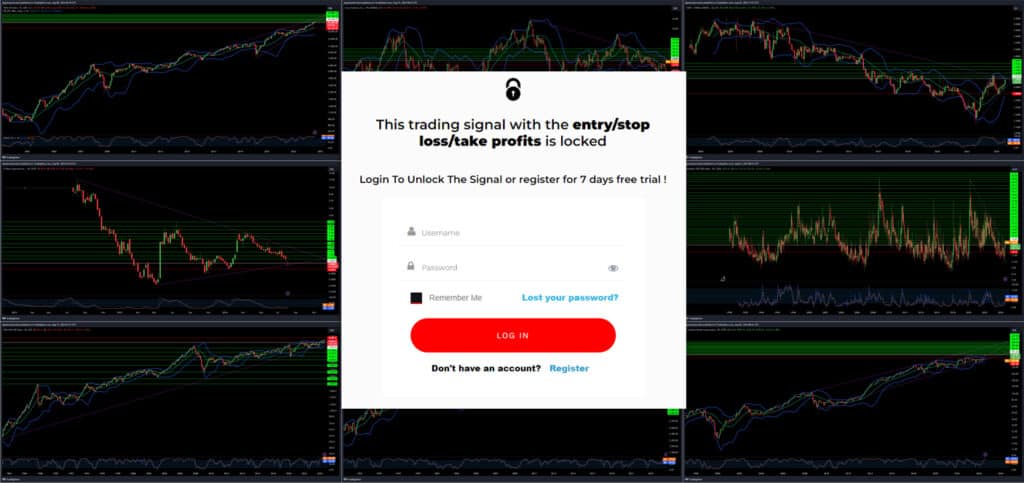When it comes to understanding consumer behavior, economic bubbles play a crucial role in shaping market dynamics and investment decisions. These bubbles, characterized by inflated asset prices and a sense of euphoria among investors, can have far-reaching effects on the economy and individual consumers.
Recently, Wall Street experienced a significant setback as a warmer-than-expected report on inflation forced investors to reevaluate their forecasts for interest rate cuts by the Federal Reserve. The anticipation of interest rate cuts had propelled stocks to record highs, but the inflation report revealed a 3.4% increase in consumer prices, leading to a revision of rate cut expectations. Though the economy seems poised to avoid a severe recession, the impact of economic bubbles on consumer behavior remains a critical factor to consider.
Key Takeaways:
- Economic bubbles can significantly influence consumer behavior and investment decisions.
- During a bubble, there tends to be a herd mentality among consumers, leading to speculative behavior and misallocation of resources.
- The bursting of an economic bubble can result in significant financial losses and a shift towards more cautious spending and saving.
- Market dynamics are heavily influenced by economic bubbles, with increased volatility and asset price disconnects.
- Long-term effects of economic bubbles include increased risk aversion, a focus on financial literacy, and a decline in consumer confidence.
The Impact of Economic Bubbles on Investment Decisions
The presence of economic bubbles can significantly impact investment decisions. When a bubble occurs in a specific market or asset class, it often leads to inflated prices and a sense of euphoria among investors. This can result in heightened market volatility as investors rush to buy into the bubble in hopes of making large profits.
However, the inflated prices are not sustainable, and eventually, the bubble bursts, causing significant losses for those who entered late. The bursting of economic bubbles can lead to a decline in investor confidence and a more cautious approach towards future investments. Investors become more aware of the risks associated with speculative bubbles and tend to adopt a more conservative investment strategy.
“The inflated prices are not sustainable, and eventually, the bubble bursts, causing significant losses for those who entered late.”
Market volatility plays a crucial role during the formation and bursting of economic bubbles. Investors must carefully analyze market conditions and balance their risk appetite with potential gains. Understanding the dynamics of an economic bubble can help investors make informed decisions and avoid significant losses.
Investors should diversify their portfolios and allocate their investments across different asset classes to mitigate the risks associated with economic bubbles. Additionally, maintaining a long-term perspective and considering the fundamentals of an investment can help investors avoid being caught up in speculative market behavior.
The Impact of Economic Bubbles on Risk Appetite
Economic bubbles can have a direct impact on investors’ risk appetite. During the initial stages of a bubble, investors may exhibit higher risk tolerance and be more open to speculative investments. This is often fueled by the fear of missing out on potential profits. However, as the bubble continues to inflate, investors become more cautious and risk-averse, as the risk of a bubble burst increases.
Investors need to assess their risk appetite and carefully evaluate the potential risks and rewards of investing in a market or asset class experiencing a bubble. It is crucial to avoid making investment decisions solely based on market hype or short-term gains. Instead, investors should focus on long-term sustainable growth strategies and always consider the potential downsides of investing in a bubble.
Risk Mitigation Strategies During Economic Bubbles
To mitigate the risks associated with economic bubbles, investors can employ various strategies:
- Conduct thorough research and analysis of market conditions and the underlying fundamentals of the investment.
- Diversify investment portfolios across different asset classes and markets.
- Set clear investment goals and risk tolerance levels.
- Regularly review and rebalance investment portfolios.
- Seek professional advice from financial advisors with experience in managing bubble-related risks.
By adopting these risk mitigation strategies, investors can navigate the uncertainties of economic bubbles and make more informed investment decisions.
Investment Decision-Making Post Economic Bubble
The bursting of an economic bubble often prompts investors to reevaluate their investment decisions and adopt a more cautious approach. This could involve a shift towards conservative investments, such as bonds or stable dividend-paying stocks, as investors seek to protect their capital.
Investors may also choose to enhance their financial literacy and educate themselves about market dynamics and the risks associated with economic bubbles. This knowledge empowers them to make more prudent investment decisions, based on fundamental analysis rather than speculative hype.
Furthermore, the experience of a bubble burst can instill a sense of caution and risk aversion, leading investors to develop a more patient and disciplined approach to investing. They may prioritize long-term goals and focus on sustainable growth rather than short-term market fluctuations.
Overall, the impact of economic bubbles on investment decisions is significant. Investors must remain vigilant, conduct thorough research, and employ risk mitigation strategies to navigate the complexities of market volatility and protect their investment portfolios.
The Role of Economic Bubbles in Shaping Consumer Behavior
Economic bubbles have a profound influence on consumer behavior. During the rise of a bubble, there is often a sense of herd mentality, where consumers feel compelled to participate in the bubble and invest in assets that are experiencing rapid price increases. This behavior is driven by the fear of missing out on potential gains and the belief that prices will continue to rise indefinitely. Consumers may engage in speculative behavior, purchasing assets they cannot afford or investing beyond their risk tolerance. This irrational exuberance can lead to a misallocation of resources and a disconnect between asset prices and their underlying fundamentals.
When the bubble eventually bursts, consumers may experience significant financial losses, causing a shift in their behavior towards more cautious spending and saving. This can create a ripple effect in the economy as consumer confidence declines and discretionary spending decreases. The ramifications of economic bubbles on consumer behavior can be long-lasting, influencing individual financial habits and shaping attitudes towards risk.
It is important to note that consumer behavior during economic bubbles is not solely driven by individual decision-making. Other factors such as media influence, peer pressure, and societal trends contribute to the herd mentality observed during bubble periods. Understanding these dynamics is crucial for both individuals and policymakers in navigating the complexities of consumer behavior and safeguarding against financial instability.
The Power of Herd Mentality
Herd mentality refers to the behavior of individuals who follow the actions or beliefs of a larger group, often without questioning or critically evaluating the information. During economic bubbles, herd mentality plays a significant role in shaping consumer behavior. The fear of missing out on potential gains drives consumers to succumb to the influence of the crowd and participate in the speculative frenzy surrounding the bubble.
This herd mentality can result in consumers making financial decisions driven more by emotion than rationality. The pressure to conform to the actions of others can override individual judgment, leading to the adoption of risky investment strategies and inflated asset prices.
“The single most dangerous thing investors can do is to get caught up in the herd mentality.” – Warren Buffett
Irrational Exuberance and Consumer Behavior
Irrational exuberance, a term coined by economist Robert J. Shiller, describes a state of excessive optimism and enthusiasm among market participants. It is often associated with economic bubbles and the behavior of consumers during these periods.
During an economic bubble, consumers may exhibit irrational exuberance by purchasing assets at inflated prices or engaging in speculative investments beyond their means. This behavior is driven by the belief that the bubble will continue to expand indefinitely, leading to significant returns on investment.
However, this exuberance is not grounded in rational analysis or a thorough understanding of the underlying market dynamics. It can result in a misallocation of resources and create a disconnect between asset prices and their intrinsic value. The eventual bursting of the bubble brings about a stark reality check, as consumers face the consequences of their risky decisions.
The Relationship Between Economic Bubbles and Market Dynamics
Economic bubbles have a significant impact on market dynamics. As prices of assets within the bubble continue to rise, investor sentiment becomes increasingly positive, leading to higher demand and further price appreciation. This positive feedback loop creates a self-reinforcing cycle, amplifying the bubble and contributing to increased market volatility.
Investor sentiment plays a crucial role in the dynamics of economic bubbles. When investors perceive an asset as being in a bubble, they may rush to buy into the hype, driving up prices even further. This herd mentality can intensify asset price volatility and exacerbate market dynamics.
In the words of renowned economist John Maynard Keynes, “The market can remain irrational longer than you can remain solvent.”
During the expansion phase of a bubble, investor sentiment is driven by the fear of missing out on potential gains. The belief that prices will continue to rise indefinitely fuels a sense of irrational exuberance, leading to speculative behavior and a disconnect between asset prices and their underlying fundamentals. This disconnect can contribute to unsustainable asset price bubbles.
However, when a bubble eventually bursts, investor sentiment undergoes a dramatic shift. The sharp decline in prices triggers market corrections as investors reassess the true value of assets, leading to a period of market instability.
The bursting of economic bubbles can have far-reaching effects on the broader economy. It can impact investor confidence, leading to a more cautious approach towards investments and a decrease in risk appetite. Market dynamics may shift as investors become more risk-averse and adopt a conservative investment strategy.
Understanding the relationship between economic bubbles and market dynamics is essential for investors and policymakers alike. It allows for a better assessment of asset valuations, the identification of potential risks, and the development of strategies to mitigate the impact of future bubbles on the economy.
The Long-Term Effects of Economic Bubbles on Consumer Behavior
The long-term effects of economic bubbles can have a profound impact on consumer behavior. When consumers experience significant losses due to a burst bubble, it often leads to a shift in their financial decision-making process. They become more risk-averse and adopt a more conservative approach towards their investments.
The negative consequences of a burst bubble extend beyond personal financial losses. It can result in a decline in consumer confidence and decreased levels of trust in the financial markets. As a result, consumers may become more cautious in their investment choices, seeking professional advice and conducting thorough research before making any decisions.
Financial literacy also takes on an increased importance in the aftermath of an economic bubble. Consumers recognize the need to educate themselves about market dynamics, risk management, and investment strategies. They understand that being financially literate is crucial to making informed decisions and avoiding future losses.
The memory of past losses serves as a reminder for consumers, shaping their behavior for years to come. They may exhibit greater risk aversion and adopt more conservative financial habits. This shift in behavior reflects a heightened awareness of the risks associated with economic bubbles and a desire to protect their financial well-being.
To illustrate the long-term effects of economic bubbles on consumer behavior, consider the following table:
| Effect | Description |
|---|---|
| Increased Risk Aversion | Consumers become more cautious and risk-averse in their financial decisions, opting for safer investments. |
| Decreased Consumer Confidence | Consumer confidence in the financial markets declines, leading to decreased participation and spending. |
| Greater Emphasis on Financial Literacy | Consumers recognize the importance of financial education and seek to improve their knowledge and understanding. |
| Seeking Professional Advice | Consumers turn to financial professionals for guidance in making investment decisions. |
| Conservative Financial Habits | Consumers adopt more conservative financial habits and prioritize saving over spending. |
In conclusion, the long-term effects of economic bubbles on consumer behavior are significant. They result in increased risk aversion, decreased consumer confidence, and a greater emphasis on financial literacy. Consumers become more cautious in their investment choices, seek professional advice, and adopt conservative financial habits. Understanding these effects is crucial for individuals, policymakers, and financial institutions in navigating the complexities of the financial markets.
Conclusion
In conclusion, economic bubbles have a significant influence on consumer behavior, market dynamics, and investment decisions. The presence of a bubble can lead to irrational exuberance among investors, driving up prices and creating a sense of herd mentality. This behavior can result in heightened market volatility and a misallocation of resources.
When the bubble eventually bursts, it can lead to significant financial losses and a decline in consumer confidence. The long-term effects of economic bubbles can shape consumer behavior and financial habits, leading to a more cautious approach towards investments and a greater emphasis on financial literacy.
Understanding the relationship between economic bubbles and consumer behavior is essential for investors and policymakers alike to navigate the complexities of the financial markets. By recognizing the risks associated with economic bubbles, individuals can make more informed investment decisions and protect themselves from potential losses.
FAQ
What is an economic bubble?
An economic bubble refers to a situation in which the prices of assets in a specific market or asset class become significantly inflated due to investor demand, leading to a sense of euphoria and a disconnect from the underlying fundamentals.
How do economic bubbles affect investment decisions?
Economic bubbles can have a significant impact on investment decisions. When a bubble occurs, investors may experience heightened market volatility and rush to buy into the bubble in hopes of making large profits. However, as the prices become unsustainable, the bubble eventually bursts, causing significant losses for late entrants and a more cautious approach towards future investments.
How do economic bubbles influence consumer behavior?
Economic bubbles can influence consumer behavior by creating a sense of herd mentality and an irrational exuberance. Consumers may feel compelled to participate in the bubble and invest in assets with rapidly increasing prices, driven by the fear of missing out on potential gains. However, when the bubble bursts, consumers may experience significant losses, leading to more cautious spending and saving habits.
What impact do economic bubbles have on market dynamics?
Economic bubbles can significantly impact market dynamics. As the prices of assets within the bubble continue to rise, investor sentiment becomes more positive, leading to higher demand and further price appreciation. This self-reinforcing cycle amplifies the bubble and contributes to increased market volatility. However, when the bubble bursts, it can trigger a sharp decline in prices, resulting in market corrections and a reassessment of asset valuations.
What are the long-term effects of economic bubbles on consumer behavior?
The long-term effects of economic bubbles on consumer behavior can be profound. Consumers who have experienced significant losses during a bubble burst may become more risk-averse and adopt a more conservative approach towards their financial decisions. This can lead to a decline in consumer confidence, decreased trust in financial markets, and an increased emphasis on financial literacy.
Source Links
- https://www.wrbl.com/news/business/ap-business/ap-stock-market-today-asian-shares-rise-after-wall-street-nears-record-markets-eye-inflation-report/
- https://www.martechcube.com/the-new-b2core-v4-modern-interfaces-and-revamped-designs/
- https://www.mytwintiers.com/news-cat/business-news/ap-business/ap-stock-market-today-asian-shares-rise-after-wall-street-nears-record-markets-eye-inflation-report/
Disclaimer
All information on this website is of a general nature. The information is not adapted to conditions that are specific to your person or entity. The information provided can not be considered as personal, professional or legal advice or investment advice to the user.
This website and all information is intended for educational purposes only and does not give financial advice. Signal Mastermind Signals is not a service to provide legal and financial advice; any information provided here is only the personal opinion of the author (not advice or financial advice in any sense, and in the sense of any act, ordinance or law of any country) and must not be used for financial activities. Signal Mastermind Signals does not offer, operate or provide financial, brokerage, commercial or investment services and is not a financial advisor. Rather, Signal Mastermind Signals is an educational site and a platform for exchanging Forex information. Whenever information is disclosed, whether express or implied, about profit or revenue, it is not a guarantee. No method or trading system ensures that it will generate a profit, so always remember that trade can lead to a loss. Trading responsibility, whether resulting in profits or losses, is yours and you must agree not to hold Signal Mastermind Signals or other information providers that are responsible in any way whatsoever. The use of the system means that the user accepts Disclaimer and Terms of Use.
Signal Mastermind Signals is not represented as a registered investment consultant or brokerage dealer nor offers to buy or sell any of the financial instruments mentioned in the service offered.
While Signal Mastermind Signals believes that the content provided is accurate, there are no explicit or implied warranties of accuracy. The information provided is believed to be reliable; Signal Mastermind Signals does not guarantee the accuracy or completeness of the information provided. Third parties refer to Signal Mastermind Signals to provide technology and information if a third party fails, and then there is a risk that the information may be delayed or not delivered at all.
All information and comments contained on this website, including but not limited to, opinions, analyzes, news, prices, research, and general, do not constitute investment advice or an invitation to buy or sell any type of instrument. Signal Mastermind Signals assumes no responsibility for any loss or damage that may result, directly or indirectly, from the use or dependence on such information.
All information contained on this web site is a personal opinion or belief of the author. None of these data is a recommendation or financial advice in any sense, also within the meaning of any commercial act or law. Writers, publishers and affiliates of Signal Mastermind Signals are not responsible for your trading in any way.
The information and opinions contained in the site are provided for information only and for educational reasons, should never be considered as direct or indirect advice to open a trading account and / or invest money in Forex trading with any Forex company . Signal Mastermind Signals assumes no responsibility for any decisions taken by the user to create a merchant account with any of the brokers listed on this website. Anyone who decides to set up a trading account or use the services, free of charge or paid, to any of the Broker companies mentioned on this website, bears full responsibility for their actions.
Any institution that offers a service and is listed on this website, including forex brokers, financial companies and other institutions, is present only for informational purposes. All ratings, ratings, banners, reviews, or other information found for any of the above-mentioned institutions are provided in a strictly objective manner and according to the best possible reflection of the materials on the official website of the company.
Forex/CFD trading is potentially high risk and may not be suitable for all investors. The high level of leverage can work both for and against traders. Before each Forex/CFD investment, you should carefully consider your goals, past experience and risk level. The opinions and data contained on this site should not be considered as suggestions or advice for the sale or purchase of currency or other instruments. Past results do not show or guarantee future results.
Neither Signal Mastermind Signals nor its affiliates ensure the accuracy of the content provided on this Site. You explicitly agree that viewing, visiting or using this website is at your own risk.




